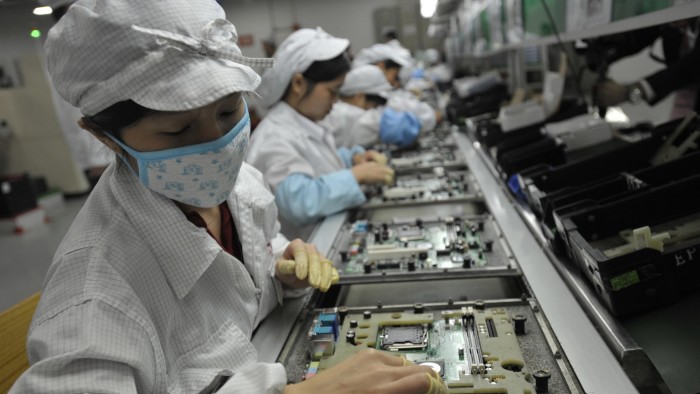US Companies Confront Challenges from Trade Tariffs Amid Trump Administration Policies
As the trade war ignites under the Trump administration, American corporations are grappling with how to respond to the president’s tariffs. Executives express a blend of concern regarding the economic ramifications while being hesitant to publicly voice their disagreements due to potential backlash from the White House.
Strategic Uncertainty Within Corporations
Company leaders find themselves at a crossroads in re-engineering their operational strategies. There are prevailing doubts regarding the duration of Trump’s current trade stance, prompting hopes among executives that lobbying efforts may persuade the administration to reconsider some tariff policies.
Amid this atmosphere of uncertainty, a climate of fear has developed, particularly following the administration’s targeting of law firms such as Paul Weiss. One board leader articulated a sentiment of caution, stating, “You don’t want to be the barking dog for everyone else because you’re going to be the one who will get shot.”
Private Lobbying Efforts
Executives emphasize the importance of private conversations with Trump and his advisory team, aiming to illustrate how tariffs could adversely impact his supportive voter base through increased costs and potential job losses. One board member highlighted that this lobbying must be done “with a velvet glove,” referring to the more thoughtful advisers within the administration.
Industry Voices on Tariff Impacts
Disney CEO Bob Iger expressed his apprehensions during an internal meeting, noting the challenges of relocating production to the US because of the specialized workforce and skill disparities across different regions. He underscored the direct impact on Disney’s operational costs, especially regarding steel prices affecting cruise ship construction.
The global commodity market has also felt the repercussions of the tariff announcements, with crude prices falling to three-year lows. Shale oil executive Harold Hamm has reiterated his support for Trump’s mission to revise trade practices, aligning his views with broader efforts to bolster American manufacturing.
Reactions from Investment Firms and Retailers
In response to the tariffs, several investment firms have prepared analyses to navigate the financial implications for their clients. The Carlyle Group plans to host a call to guide investors through these turbulent times, acknowledging the unexpected breadth of the tariffs.
Corporate leaders from various sectors, including retail, are contemplating how to manage costs associated with tariffs. Home Depot’s CFO Richard McPhail mentioned ongoing negotiations with suppliers to mitigate the tariffs’ financial burden. Some companies, like Guess, are even considering shifting their sourcing from Asia to Latin America, where tariffs are comparatively lower.
Long-Term Outlook and Barriers to Action
Despite heightened scrutiny and potential supply chain adjustments, many experts warn against premature changes. Kristin Bohl, a customs specialist at PwC US, noted, “I think they will stop short of making major supply chain moves because this is not even the beginning of the end.” The overwhelming uncertainty surrounding US trade policy presents significant challenges for corporations aiming to pivot their operations.
While executives recognize the potential for market overreaction, they also acknowledge that this direction was anticipated, as trade discussions have been a focal point since Trump’s campaign. The situation remains fluid, and corporate leaders continue to monitor developments closely.
Conclusion
As US companies navigate the complexities of escalating trade tensions and tariffs, the future remains uncertain. Corporate leaders are balancing the need for strategic adjustments with the risks of political retaliation, all while interpreting the broader implications of these policies on their operations and workforce.


